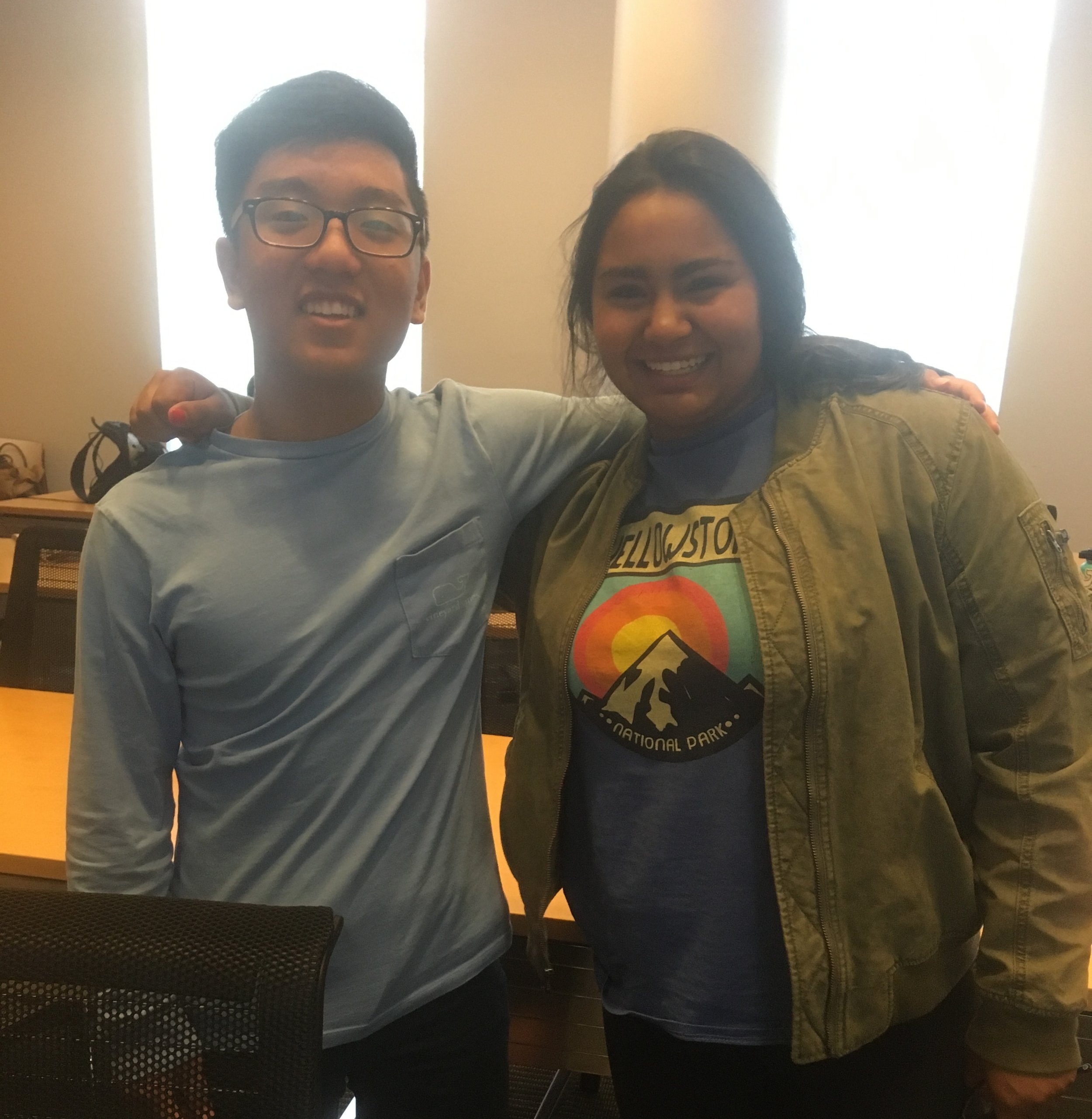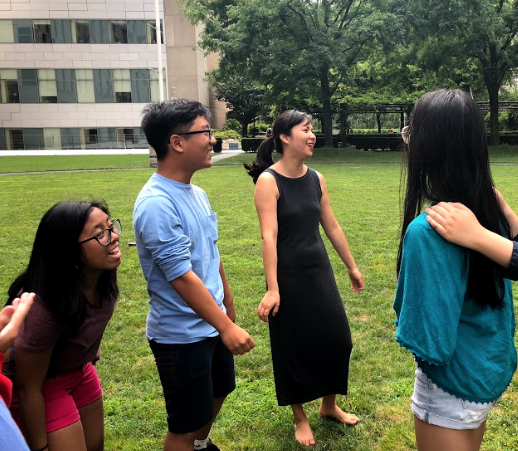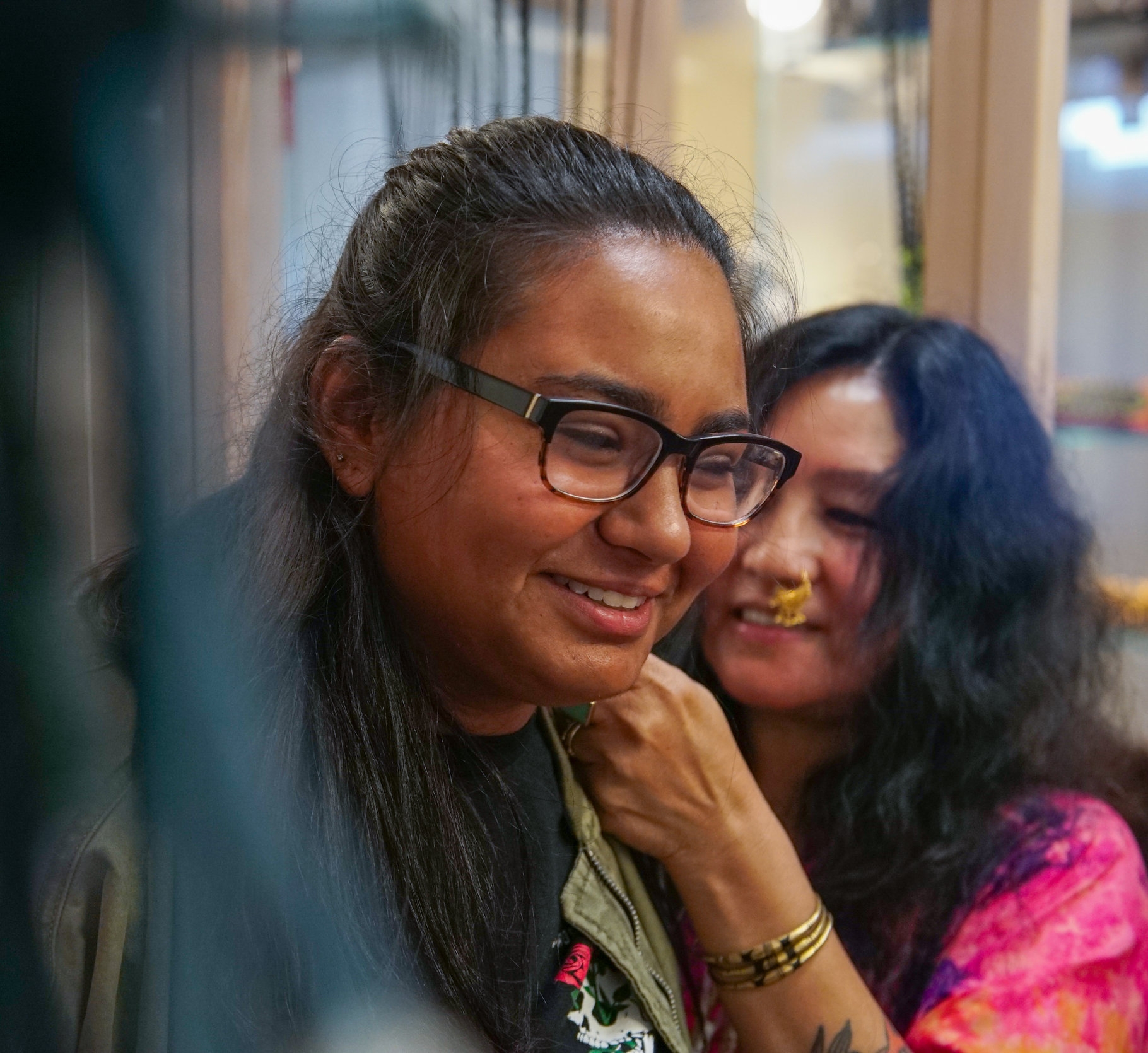caleb lee
saachi kheterpal
what have you learned about yourself? what have you learned about someone else?
saachi kheterpal
The Kavad Oral History Project has cast a light that there are in fact people in the world with a similar Asian American influenced life story like mine. I finally found that I am not one, but joined by a large community, fighting for representation in a country where people don’t always acknowledge Asian Americans as a genuine group, part of the American society. The struggles of balancing both our heritage which can clash with our modern day lives, while being the children of immigrants at the same time, seemed understandable and prevalent in this group of people. For the first time I felt understood. Being an Asian American is not always easy and we recognized that. I realized that I can truly be who I am and wear my “label” proudly. I gained enlightening friendships, conversations, and connections alike none I have ever experienced before. Just as my parents’ hardships have pushed them to value a sense of hard work and integrity, others’ do as well. And though it might not always be easy to live in a world where people don’t believe you when you say you are from California, New York, or any other state because you don’t fit the “ideal appearance” our society has created, at least I have learned that providing them with the exposure, knowledge, and understanding of Asian American history is what will bring progress. I now know that I have the courage and confidence to be that leader in my community.
caleb lee
Both of my parents came from South Korea to the United States at the ages 14 and 15 with a very basic understanding of the language. My parents, like many other immigrants, had to work diligently for hours every single day in order to be successful in high school and eventually college. After reflecting on myself during this project, I find the resilience, mental tenacity, and determination my parents had to take advantage of the opportunity they were given to be inspiring. I have always been ambitious for my own personal reasons and aspirations; however, understanding that my parents had transcended the adversities of being a foreigner to a country inspires me to do more.
Furthermore, during my interview with Saachi I learned that she also admires her family member’s struggle towards to reach a higher level of education and desire for success. Saachi aspires to be a sports medicine surgeon but for now she is working hard six days a week training for crew. Her grandmother came from India during a very tumultuous period but rose up against her challenges, working hard to educate herself, breaking the norm of women working in the household, and building a new life for herself and family.
interview excerpts
saachi interviews caleb
SAACHI:
Are there things which you and your family do to help you connect yourselves to your Korean heritage?
CALEB:
We speak Korean at home. My parents have integrated Korean customs as well as standard Korean traditions in our home.
SAACHI:
How did your parents journey to America affect what they value today?
CALEB:
My mother and father both came when they were young, 14 and 15 respectively. In my father’s case it was very difficult for them to come over as they had no money. That resulted in separation of my father’s family, some immigrating to America while the rest stayed in South Korea. Both of my parents came knowing little English, yet they continued to work really hard in high school and ended up both going to Cal, Berkeley for college. Their effort to rise in the social classes and their experience as immigrants, pushes them to value and appreciate hard work as well as integrity in a person. They believe that people who work hard can achieve anything.
caleb interviews saachi
CALEB:
Wow. Crew is a very difficult sport. I’m just curious as to where you get the motivation or drive to continue rowing when you’re extremely worn out or even just rowing at all.
SAACHI:
My crew training is very rigorous. I train for six days a week for about one and a half hours while balancing school and other extracurriculars as well. However, my grandmother has always been a very inspiring figure towards me and is someone whom I admire very greatly. Her image is what pushes me to keep going and work harder.
CALEB:
Tell me a little bit more about your grandmother. Who is she? What did she do that makes her such an inspiring figure in your life?
SAACHI:
My grandmother was born in a particularly tumultuous time period in India when India partitioned into two nations, India and Pakistan. Because of this shift, she was forced to leave her home and everything behind, including her wealth. She had to restart her life from the ground up.
CALEB:
That sounds very difficult.
SAACHI:
It was, but my grandmother refused to wallow in pity and simply let things be. She took initiative to educate herself despite the discouragement from those around her and worked hard to create a life for herself. To me she’s like the epitome of woman empowerment and independence and I find that to be very admirable, which is why I want to be like her. I want to work hard in school and in whatever I do so I can build a life for myself as well.



